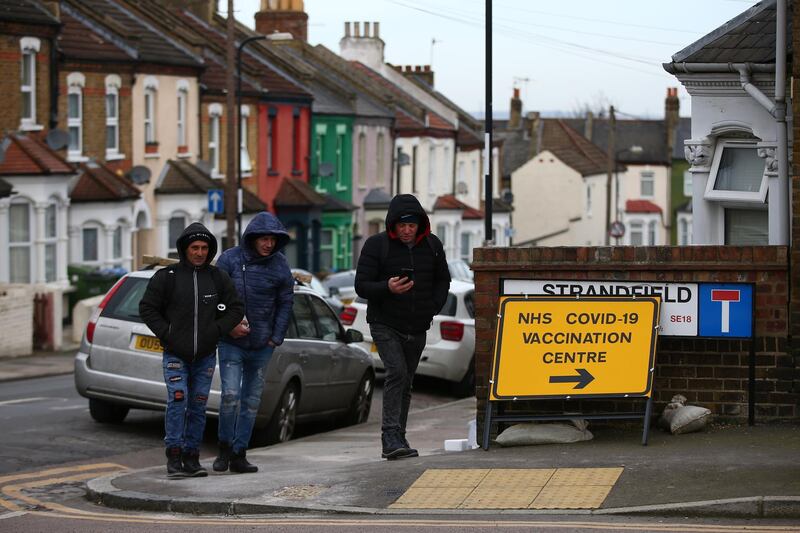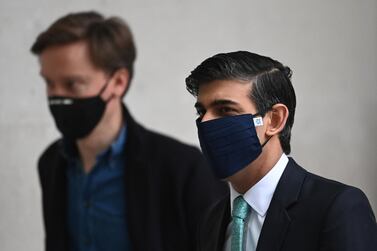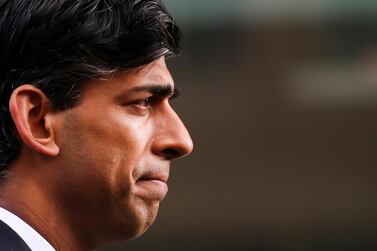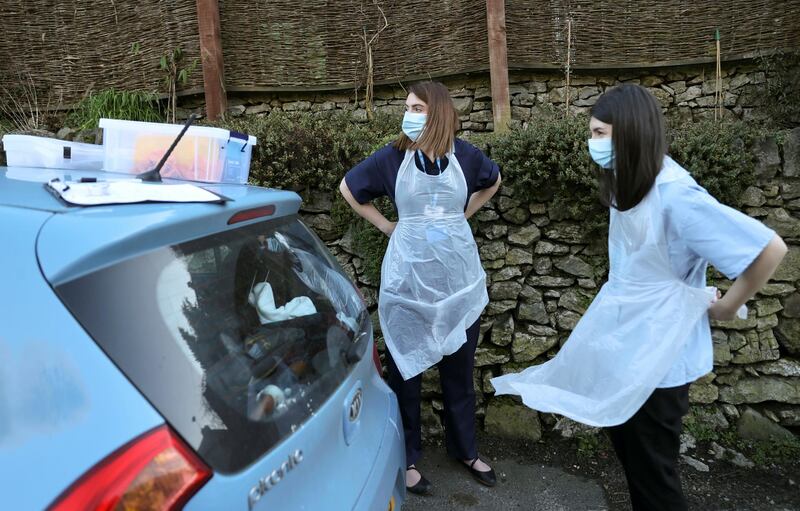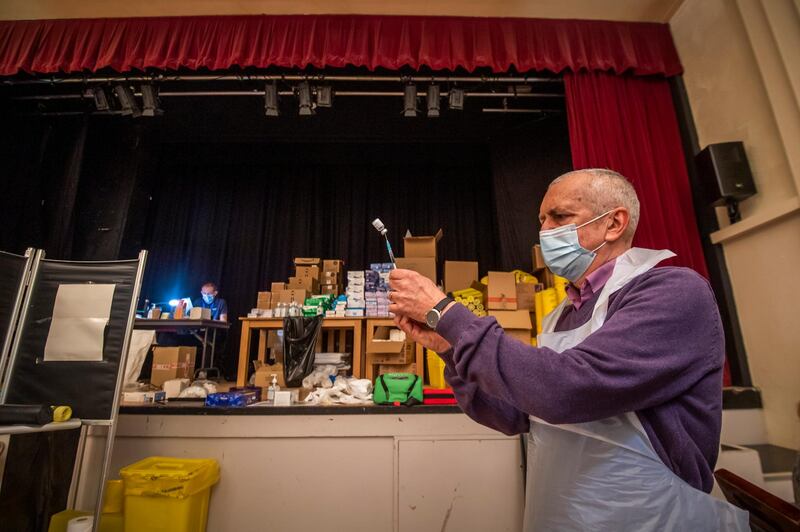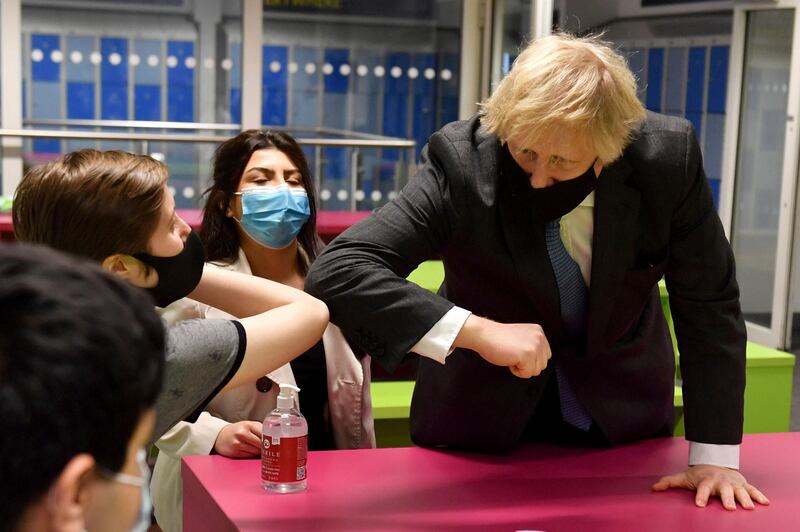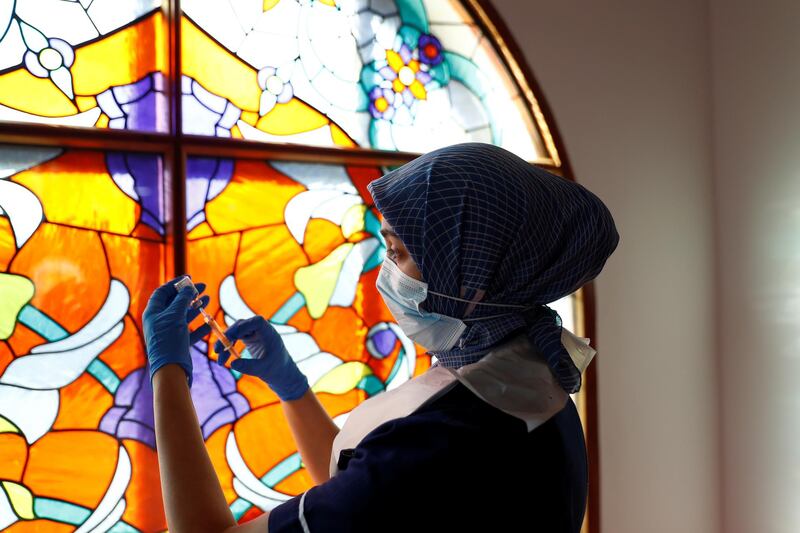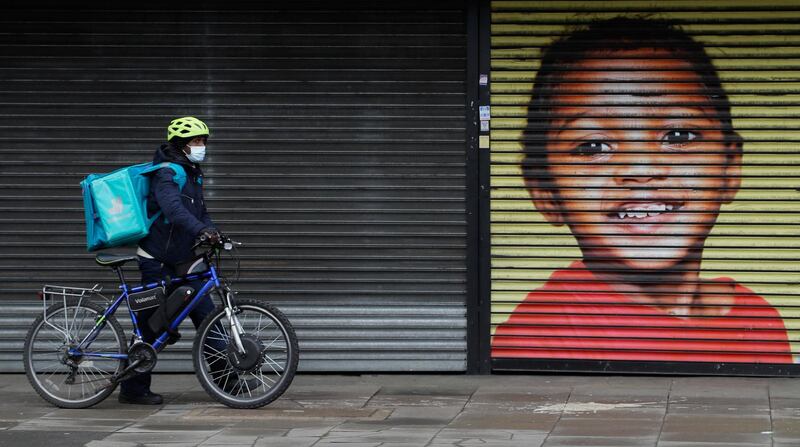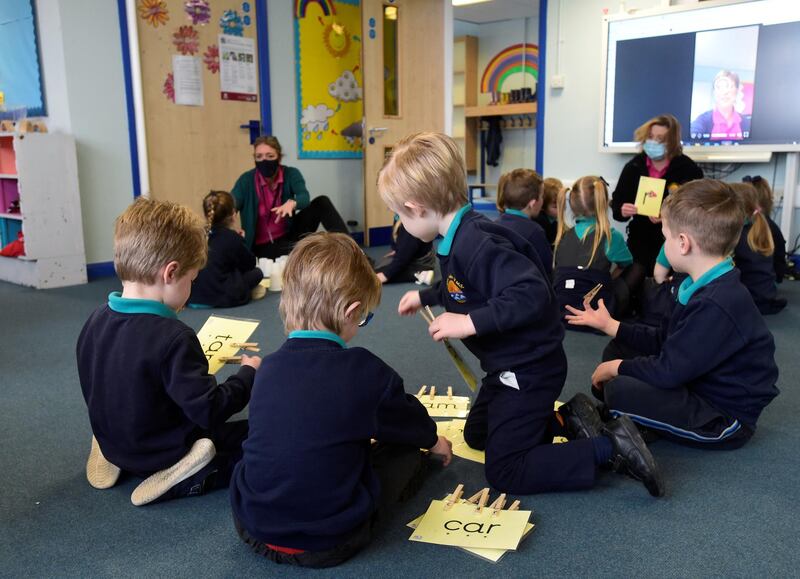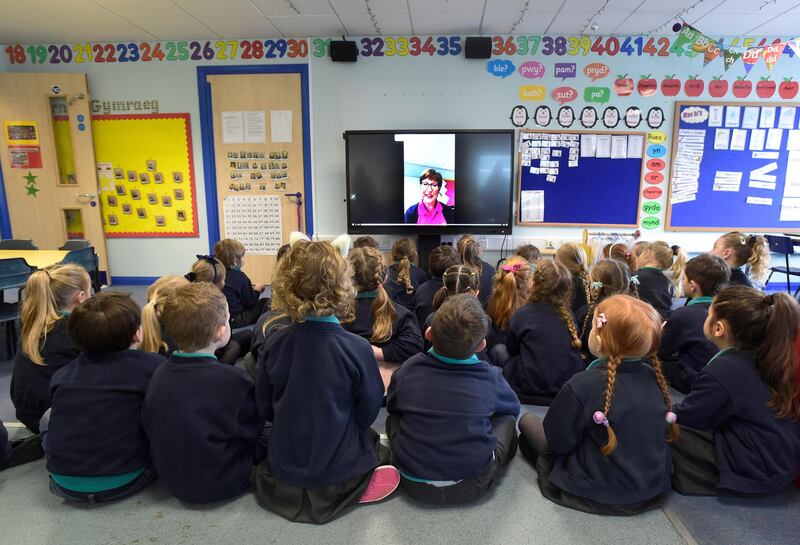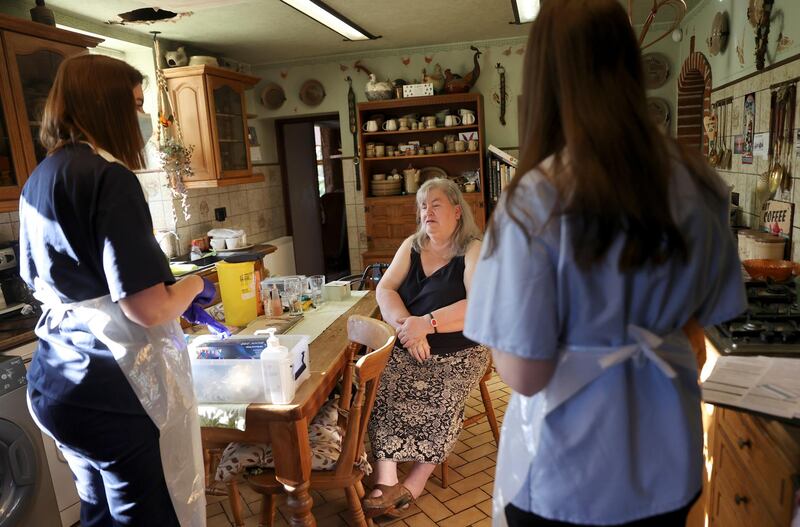Britain’s Chancellor Rishi Sunak is expected to give the country's vaccination programme an extra £1.65 billion ($2.29bn), with £22 million set aside to test the viability of a third dose.
Mr Sunak will deliver his budget on Wednesday and the funds for the vaccination programme will help to improve testing and support government plans to ensure that every adult is offered a dose by July 31.
On Sunday, Mr Sunak praised Britain’s vaccination campaign, which has given more than 20 million people their first vaccine dose.
“It is essential we maintain this momentum,” he said.
“Protecting ourselves against the virus means we will be able to lift restrictions, reopen our economy.”
The cost of Britain’s programme to secure and administer hundreds of millions of Covid-19 vaccines stood at £11.7bn in December, a National Audit Office report said.
The government signed deals for five vaccines, providing up to 267 million doses at an expected cost of £2.9bn, and non-binding agreements with two other companies to bring the total to 357 million doses, the report said.
Other costs for sponsoring trials and the distribution and administering of vaccines took the total spent to £11.7bn.
Under the extra funding set to be unveiled tomorrow, Mr Sunak will invest a further £33m to improve vaccine testing and development to protect against future outbreaks and variants.
This will include £28m to expand testing and the country’s ability to scan for new variants.
It will also include £5m to create a “library” of Covid-19 vaccines, which can work against different strains of the virus, at the Centre for Process Innovation in Darlington.
In addition, £22m will be for a world-leading study to test the effectiveness of combinations of different Covid-19 vaccines and the effectiveness of a third dose.
A global vaccination race is under way to administer at least two doses to billions of people around the world.
However, some drug makers and governments are considering whether a third dose or “booster shot” is needed.
Despite limited data, some members of the medical community fear protection from two doses will wane over time, meaning a booster could ensure the immune response lasts.
This falls in line with vaccines against other diseases such as hepatitis A, where booster shots are required.
Last week, Pfizer and BioNTech said they were testing a third dose of their jointly developed vaccine, amid hopes that a strengthened immune response will help people to build up better resistance to new strains.
Britain has suffered the biggest Covid-19 death toll in Europe and the heaviest economic shock as its gross domestic product fell by 9.9 per cent last year.
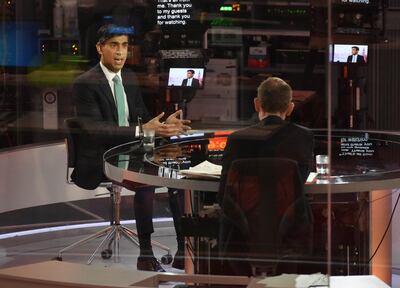
Despite the number of cases dwindling and the success of the vaccination drive, Mr Sunak ruled out hastening England’s exit from lockdown.
“These are the earliest dates by which things can happen,” he told the BBC on Sunday, referring to Prime Minister Boris Johnson’s road map out of lockdown.
“But I think you are right that we should take comfort and confidence from the fact that the roll-out is going well, that the data that is coming back about the vaccine’s effectiveness is also coming back strongly and, hopefully, this is a cautious but irreversible one-way ticket to getting our lives slowly back to normal.”
Mr Sunak has accumulated the country's biggest peacetime budget deficit to protect jobs and help businesses and to increase funding for health and other services.
“We went big, we went early and there is more to come. People should feel reassured by that,” he said.
Mr Sunak said giving people vaccine passports or certificates to allow them to enter venues or events might be a way to help the country and its economy recover from the pandemic.
“Obviously, it is a complicated but potentially very relevant question for helping us reopen those parts of our country such as mass events,” he said.
